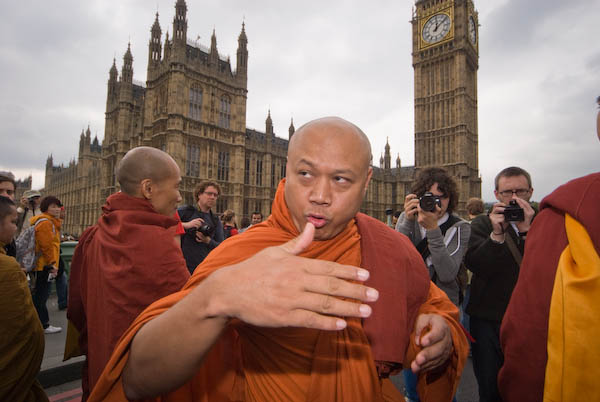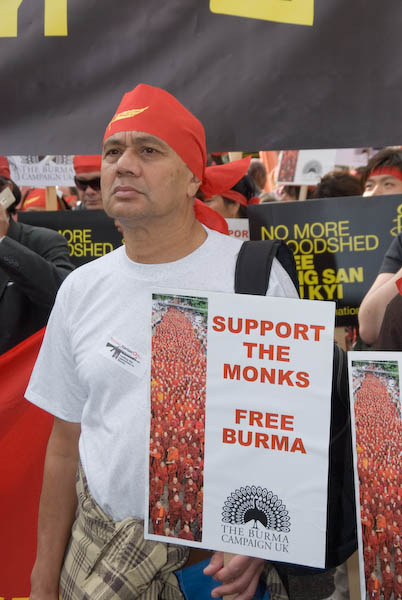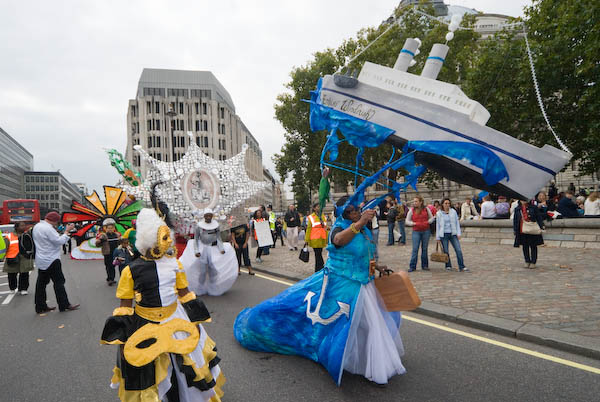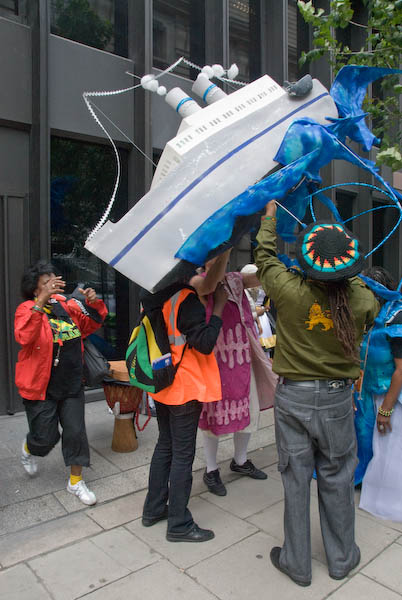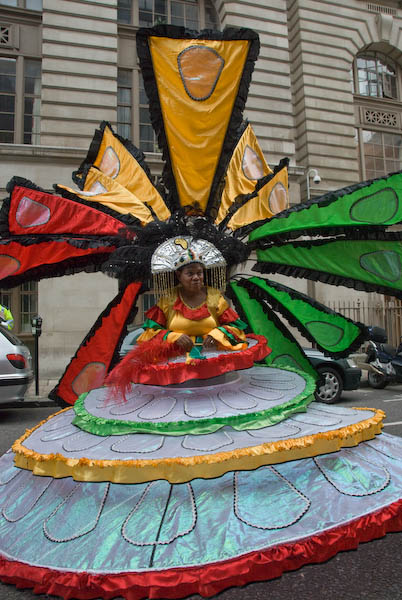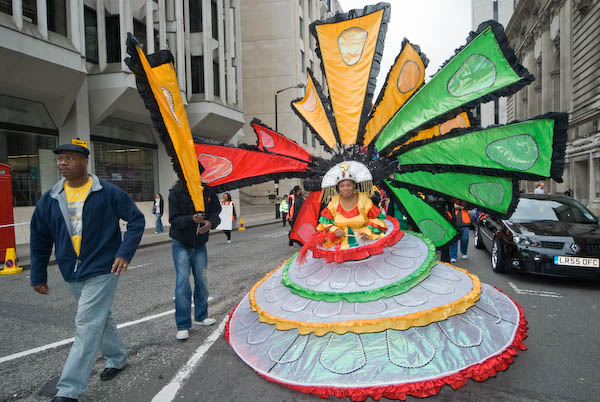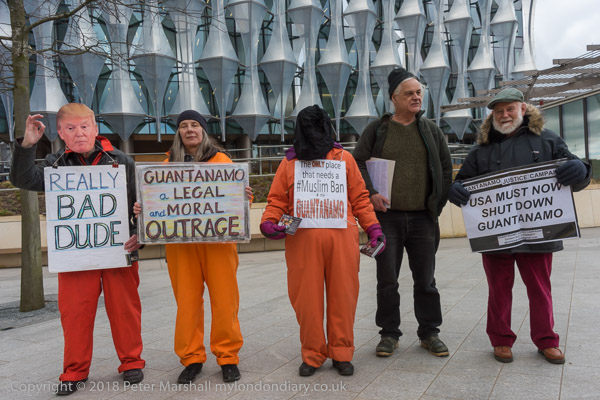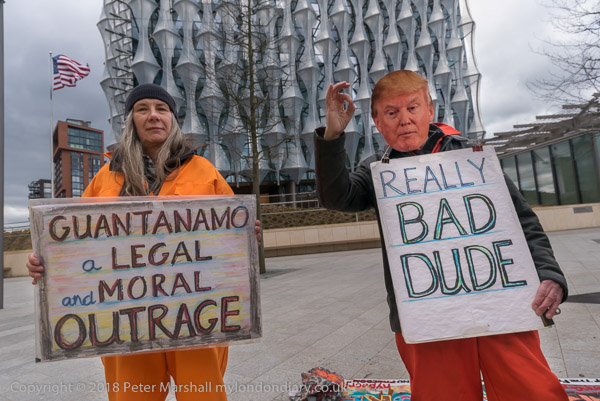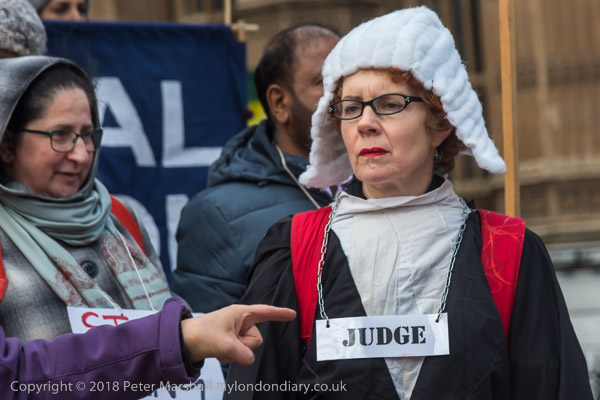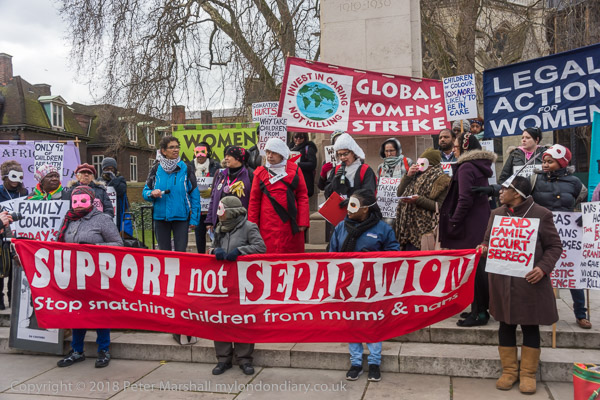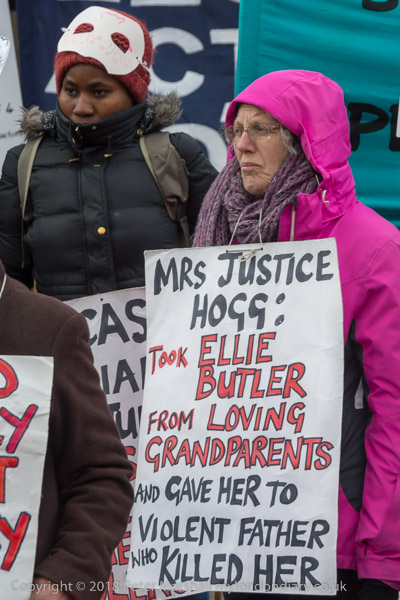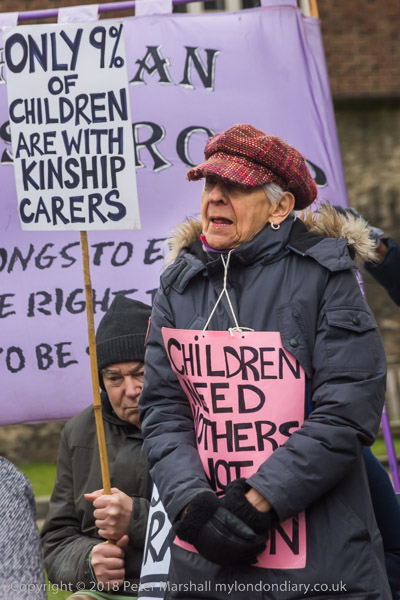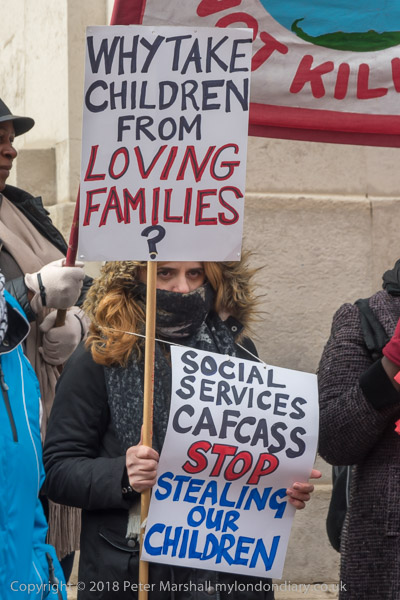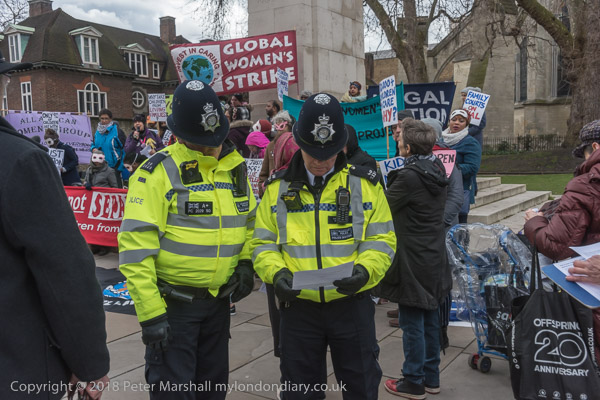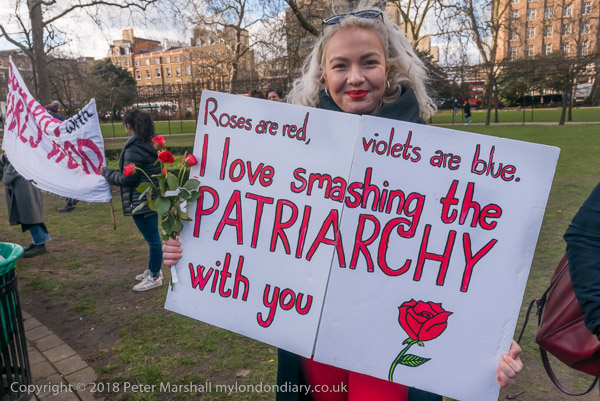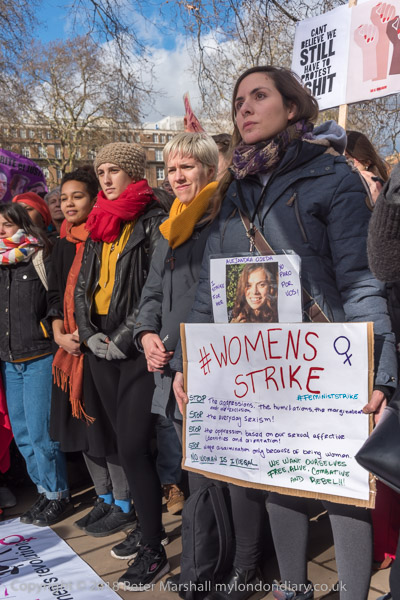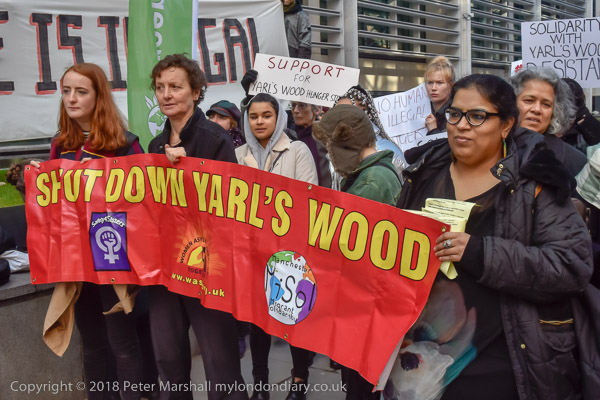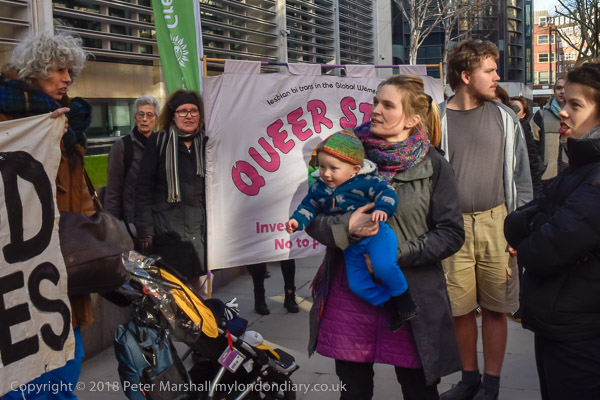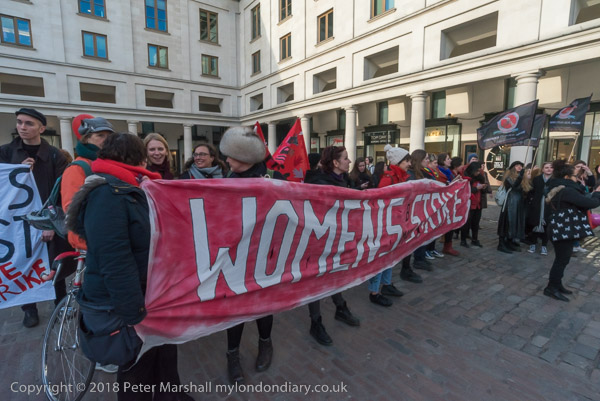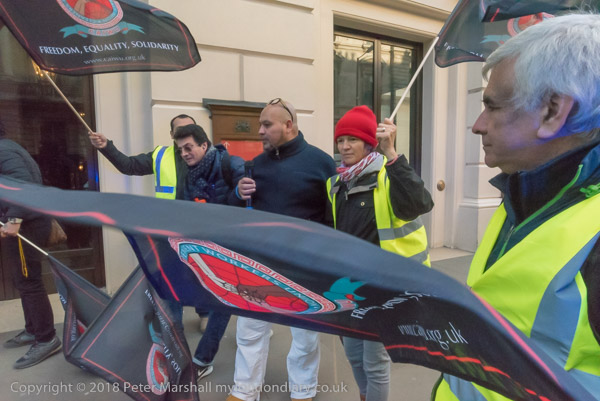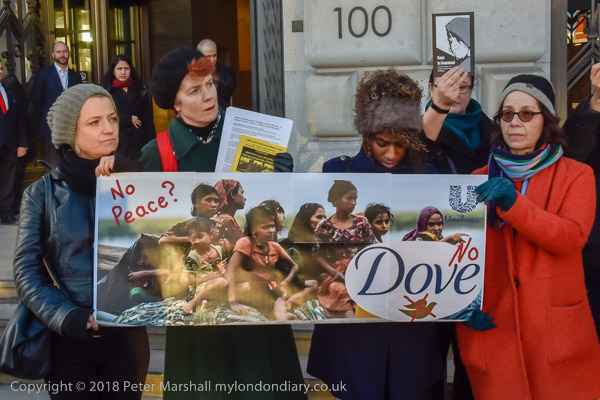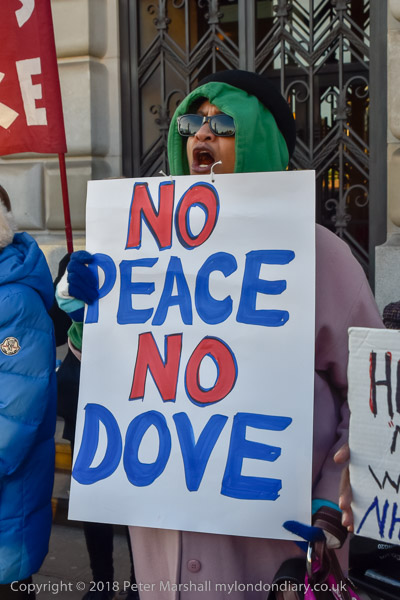Global Human Rights Torch Relay: Thursday 25th October 2007 I photographed this rally in Trafalgar Square and the torchlit march which followed to a protest at the Chinese Embassy.
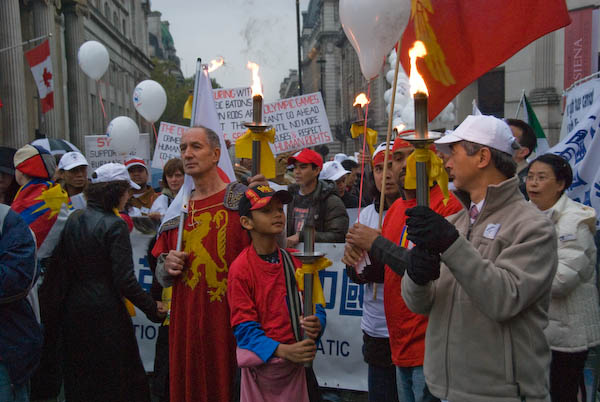
The 2008 Summer Olympics was to be held in Beijing, China from 8th to 24th August 2008 and the official Summer Olympics Torch Relay – which had been a feature of the Olympics since the 1936 Berlin games – was announced in April 2007, though it was to take place from March 24 until August 8, 2008. This travelled the world in a very roundabout 129-day route from Athens to Beijing and was met with protests in many cities including San Francisco, London and Paris.

The Coalition to Investigate Persecution of the Falun Gong in China (CIPFG) organised a series of torch relays in cities around the world beginning in April 2007 to raise awareness about human rights violations, particularly in China and countries surrounding area and in particular the persecution of crimes including torture and the harvesting of human organs of Falun Gong practitioners.

The policing of the event and the intervention of Westminster Council officials showed that there was huge political pressure in London against protests against China and against the Olympics as London was preparing for the 2012 Olympics here. We saw it again when the official torch relay came to London in April 2008.
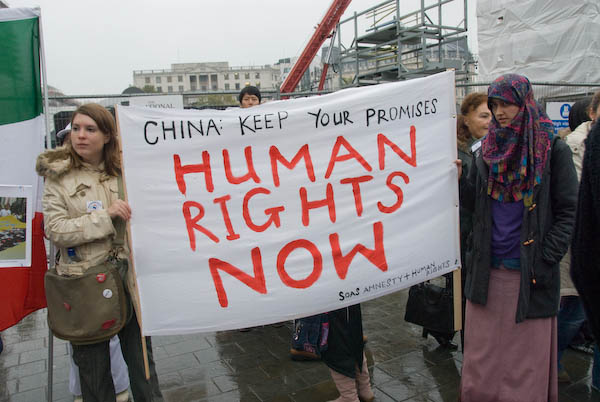
Here I’ll post – with minor corrections – my account of the event from 2007 with a few of the pictures – many more on My London Diary.
Global Human Rights Torch Relay – 2007
Trafalgar Square to Chinese Embassy
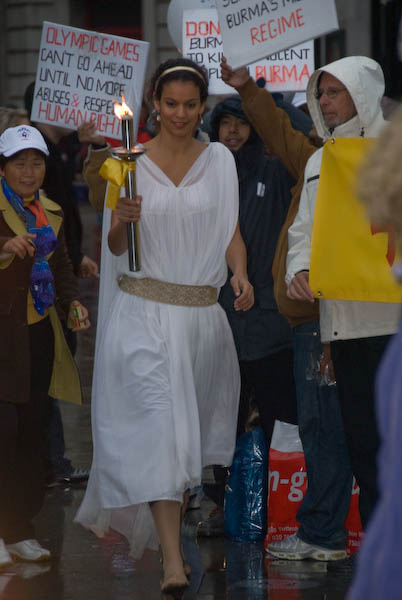
Thursday was a miserable day, with persistent drizzle or light rain, and Trafalgar Square was clogged up with some computer games fair, so that there was little space left for the Global Human Rights Torch Relay on the North Terrace. Organised by the ‘Coalition To Investigate The Persecution Of The Falun Gong‘ this also highlighted other human rights abuses in China, as well as some in countries within the Chinese sphere of influence, notably Burma (Myanmar.)

This relay had started in Athens in August, with events in several European countries, and it is going on to Australia and North and South America before ending in Asia next year.
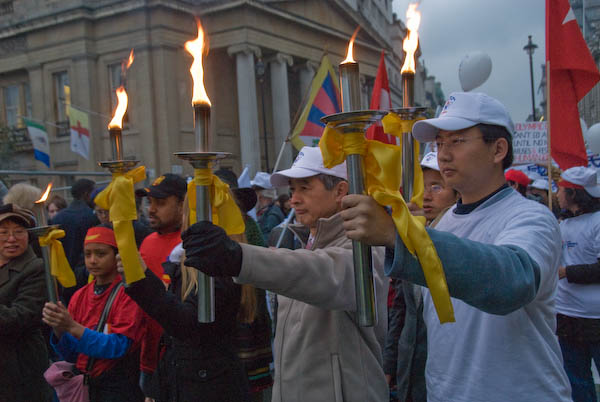
The relay points out that the these human rights abuses are at odds with the ideals of the Olympic Movement and calls for the Beijing Games to be moved to one of the previous Olympic venues unless there are dramatic improvements in human rights in China. Among the speakers were a couple of Lords and several ex-Olympic competitors.
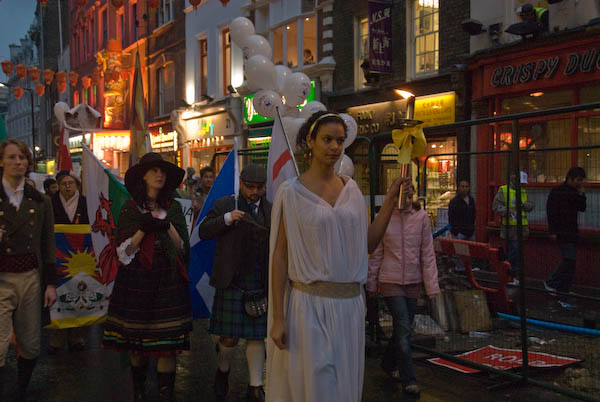
Westminster Council officials arrived after an hour or so and tried to stop the event, which thanks to the gaming festival, was indeed blocking the pavement. They made the protestors form a narrow line against the back wall. Then they and the police ruled out the use of the sound system, declaring it was a hazard in the wet conditions. Speakers had to make use of a battery operated megaphone.
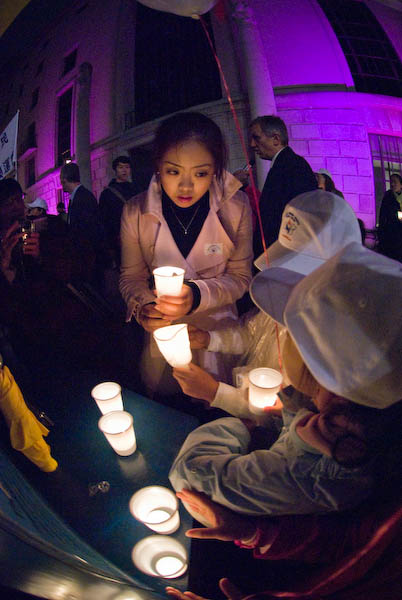
Despite this harassment, the protest continued, with a ‘Greek Goddess’ bringing the flame to light the torches of figures representing England, Scotland , Wales and Ireland, and perhaps a couple of hundred marched through the West End to the Chinese Embassy for a candle-lit protest.
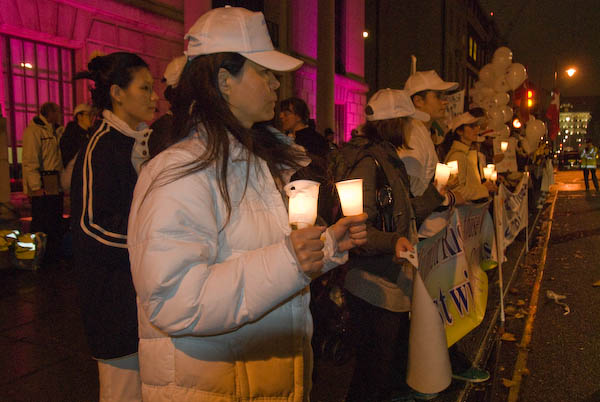
Here photographers met with deliberate antagonism from the police. Officers are standing in a line around 2 metres into the road in front of the protest. The area between the police and the demonstration is completely clear, absolutely safe, and it is where we need to be to take pictures or film the protest. Much to our disgust, we are ordered out when we attempt to get on with our work.
Many more pictures on My London Diary at global human rights torch relay.
Flickr – Facebook – My London Diary – Hull Photos – Lea Valley – Paris
London’s Industrial Heritage – London Photos
All photographs on this page are copyright © Peter Marshall.
Contact me to buy prints or licence to reproduce.
